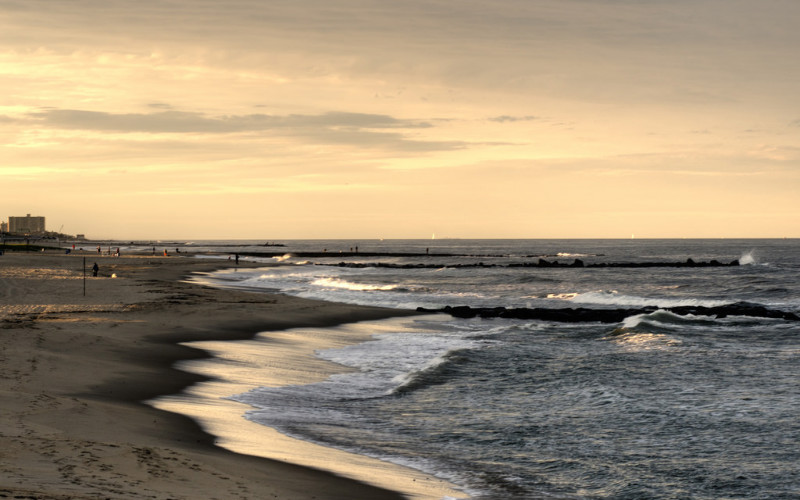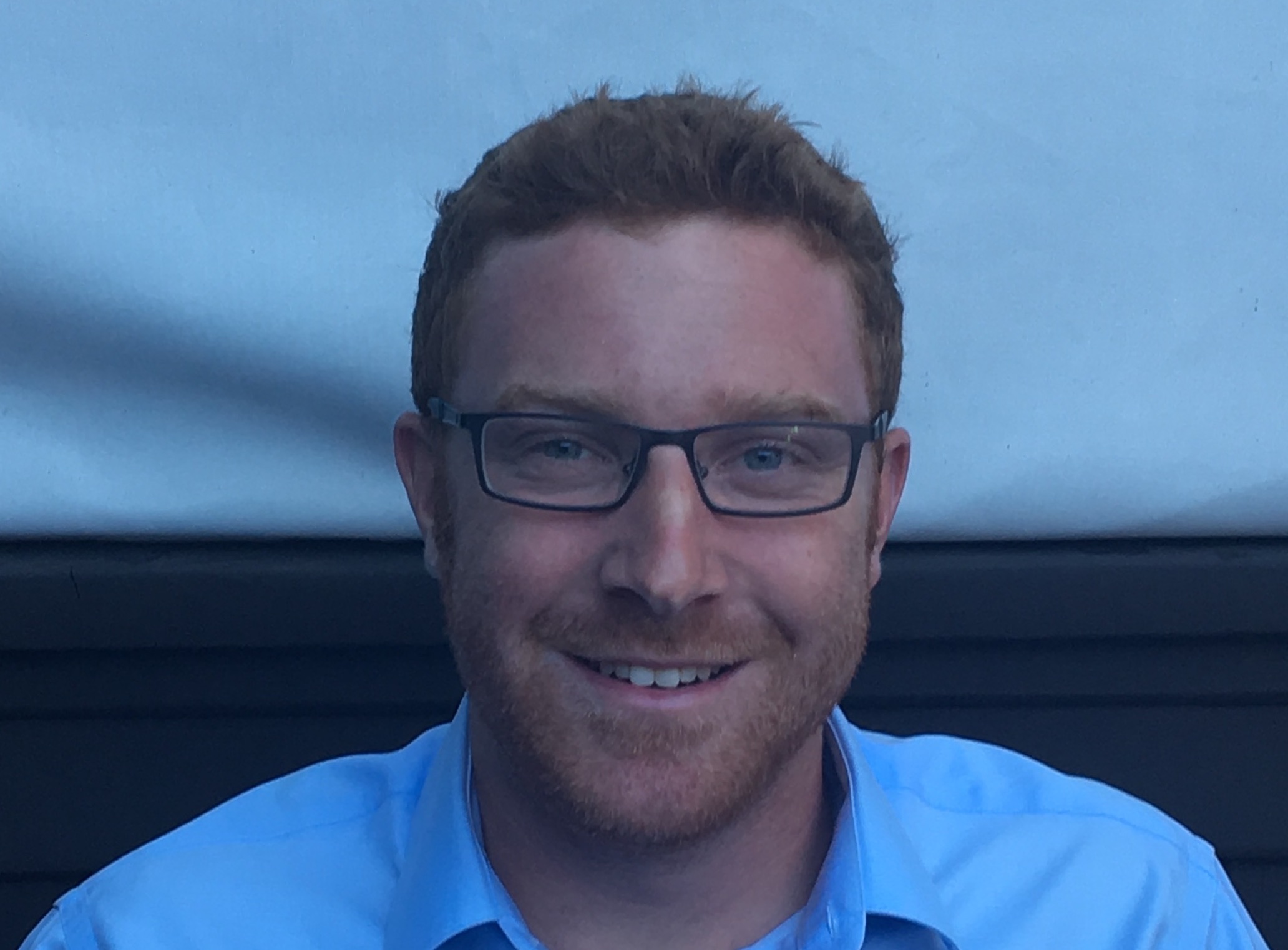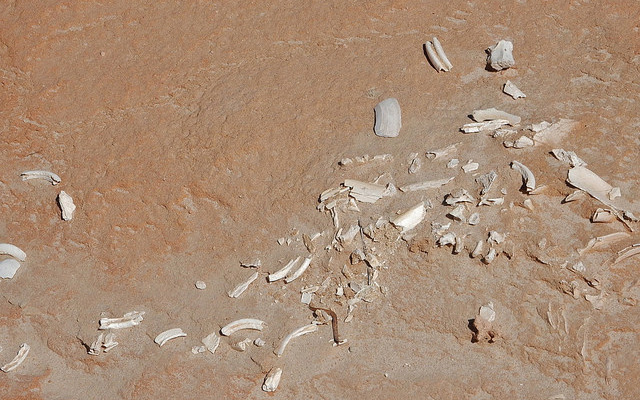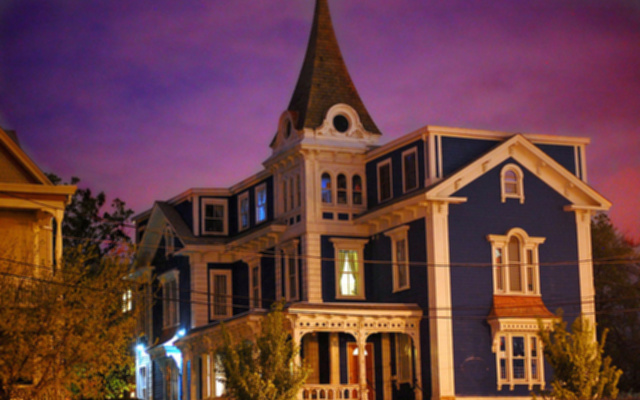
The Return | By Phil Wood
The whole thing happened quickly, like moments from a fractured dream. He returned home with nothing but the clothes on his back. His mother was disappointed by this, a look she tried to stymie as she pulled him in tightly for a hug. It was the first time he’d been home in three years. Three whole years. He remembered thinking about that on the train. A town where he spent nearly every day of his pre-collegiate life was now a stranger.
When he stepped into the foyer, a place he remembered as ocean blue, the first thing he noticed was the missing white bench. It had been replaced by a flowered antique cabinet, a burnt brown hue that nearly matched the new paint on the walls. Maybe it wasn’t new. He couldn’t remember. Once, his mother had called him on the phone to tell him she was repainting the walls, but he couldn’t place the exact time of that call. There had been so many phone calls. Especially near the end.
His father greeted him, his hair thinner than the last time he saw him, a year ago in the city, when he put on a brave face and pretended that everything was going well. There was no point in worrying his mother, the one time she would get to see him all year. He was surprised that his father made it to the door before the dog, but then he remembered that the dog had died two years ago. He thought about how little emotion he felt when he got the news, a feeling he was not proud of as he realized he would have been an intruder in the dog’s mind.
That first night was hard. He promised himself three years ago that he would never move back into his parent’s house. And although he didn’t have anything to move in, he couldn’t help but feel like some sort of failure.
He stared at the ceiling fan, still stuck on the medium setting, just like it had been when he first broke the remote when he was 15 years old. Ten years ago. Yet everything felt like it happened in one jumbled yesterday. He couldn’t put his finger on where things went wrong, because really, they hadn’t. He had done everything he was supposed to, as well as he could, and yet still, he lay in the same twin bed that he had spent his entire childhood sleeping in.
And before he knew it he was sitting in McNamara’s, or “Macs” as they all called it, his four best friends flanking him, each drinking a $2 beer, something that he had never realized he missed so much. They talked about nothing, just like the old times. Everything went along as it used to; like there wasn’t a gap in their history. Maybe it was social media, or the pointless group chat, he didn’t know, but something made this feel almost like it could still be home. That’s what terrified him. He remembered thinking how that final sip of his fifth beer – the sip that finally got him drunk – tasted so much like regret. His friends would never judge him. He knew that. They didn’t care what he had been through, and they didn’t question it either. He appreciated that. After all they would never understand. They still lived with their parents, dated girls who slept in their parents’ houses, and ate food bought and cooked for them like they were still children. For three years he had survived off of take out, dated girls his parents would never meet, and paid rent far too expensive on a salary far too low.
He drifted off into the sinking space that had become so much a part of his life of late. It was like being trapped in a plastic bag, just barely below the surface of a lake. He knew he was so close to emerging unscathed, unharmed, but the extra bit of effort it took to break through the molecules, always felt like too much. His legs were too weak, his mind growing rich with panic. He thought about the day when he finally made the decision to leave, but then he removed the intrusion. If he was going to leave the west coast behind, he had to erase it entirely from his memory.
Then he was staggering up to his doorstep, walking across the cool, damp grass of early Autumn. He looked up at the clear sky and saw stars. He had spent so much time in a city with so many, yet he almost forgot what they looked like. He stumbled to the door, his breath stale with beer, reached in his pocket and pulled out his keys. He put the keys in the door, and only then did he remember that he had not taken a new house key from his mother. For all intents and purposes, he was homeless. His keyring lonely with just two keys from his first job and a safe key for a box he left back in his old life.
He kicked off his shoes, walked down to the sidewalk, and stood above the sewer grate. He stared down into it, remembering the time that he had jokingly put his friend’s hat over it only to be spooked by a passing car and drop it in. His friend’s mom had screamed at him relentlessly. Pathetic, he thought. He dropped the keys and watched them disappear into the darkness.
He woke up the next morning, got on an old bike and began to ride, feeling every bit like the child he had respawned into. He rode the bike down to the trestle where he had spent so many nights in his youth. As he meandered down the dirt path, hearing the soft ripples of the creek approaching, he was surprised to hear his name shouted.
He looked up to see two men, shirtless, with faces so recognizable but names so elusive. He threw down his bike and said hello. They offered him a beer and he was back at it again. He sat off to the side as they did backflips off the trestle into the creek. When they lit up a joint they sat next to him and offered him a hit.
The man with the darker hair said he thought that he had moved away; that he was working in the movie business or something, living his dream.
He was quiet for a moment before telling the man he had just moved back, something had happened, and he needed a change.
The lighter haired man laughed, took a rip of the joint, and announced that even the most perfect people fail sometimes.
Then he was back in Mac’s with his four friends, their girlfriendss well. The conversation carried on. He was included. He was never left out, making his witty comments like he had always done, hiding the pain inside of him like he had always done. Again, he went home with the stale taste of beer in his mouth. But this time instead of throwing away his keys he threw away his cover.
He sent her a text and imagined her sitting up in bed, her roommate nestled closely into her, eating the vegan cupcakes that she had forced him to eat, and that he surprisingly enjoyed. It was only 10pm where she was and he knew she wouldn’t be at a bar. She hated bars. He always joked that it was fate that they should meet at one. Something extra put us there. She had cried when he said he was leaving, but he knew she would get over it. She was too good for him anyway, something she hated that he said. While he was working his ass off, 10 hours a day getting screamed at, she was hiking, painting, seeing the world. It was the life he wanted but wasn’t talented or brave enough to have. As he laid in bed waiting for her response, he felt guilty for all of the things that he said to her, for never really giving her a chance. His self-loathing was exhausting and yet it never scared her away. He fell asleep. She never texted back.
The next day he rode his bike 23 miles to the boardwalk, his legs aching, butt sore from the seat. He walked out onto the sandy beach, empty because it was a Tuesday and it was September, and watched the seagulls fly helplessly into the wind. He walked toward the ocean and sat down just as the beach began to slant downward. The waves crashed and occasionally the water would lap at his toes—the bubbly white froth that looked so menacing when it thundered down, but was so peaceful on the sand.
This was the furthest he could possibly be from his old life – the other side of the country, his back to the ocean that he had called home for too long, his eyes facing out at another sprawling in front of him. He started to cry. It was pitiful, but he didn’t care. No one could see him here, and after moving back, crying was to be expected.
When he woke up it was dark and a beach police officer was shining a flashlight in his eyes. The officer asked if he was drunk, if something had happened. He stood up and walked passed the officer. The officer didn’t even question him, the defeated man, covered in sand, his face leathery from the sun.
That night at Mac’s—for the third straight night—the conversation faded to the background and he broke down. His friends stared at him, the waitress asked what was wrong. He said nothing, stood up, and stormed out into the parking lot.
His friends followed—of course they did—why wouldn’t they? He told them he was a failure, that he couldn’t live with himself, with no direction, no dreams, and no idea why he got up in the morning.
Failure? You can’t be a failure. You went for it. So, what you came back? People move on, people change, people get different ideas about their lives. If you’re a failure than what the fuck are we? You’re here today, we’re all here today, but that doesn’t mean we’re all going to be here forever. We’re struggling, but what else can we do?
He told them he was meant for something greater, something more.
We all hope that. But maybe we’re not. Maybe we’re just ordinary fucking people meant to live ordinary fucking lives. Is that so bad? You’ve seen the other side. Why did you come back? What you told me was everyone was miserable and you didn’t want to be a part of it. Well now you’re here and we’re all miserable too. But at least we have a reason to be, and Goddamnit, if Mac’s is the only source of joy we have – if we’re the only source of joy we have – well fuck, we better make the most of it.
They all hugged him one by one, as he stood shaking in the parking lot, like some sorry little boy. It wasn’t sadness, it was frustration. A feeling they shared. They all had a sinking space, just like he did—everyone had a sinking space. But it was up to him how he wanted to handle it. It was up to him if he would surface and rip the plastic bag from his head.
That night he texted her again. He knew she wouldn’t answer. When she didn’t answer it was purposeful, not simply missed in the chaos of the day. He thought about her hiking to their secret spot, high up in the mountains, her bag strapped tightly on her shoulders, her hair flowing in the breeze, as the sun set over the city. She would look down and in that swarm of people and lights, she would unknowingly see her future. Her husband, who she would meet at an art exhibit—not a bar. The empty warehouse where all of her work would be put on display. The conference room where she would pitch the idea that fulfilled her purpose. The street she would cross, lost in her music, oblivious to the car barreling toward her, the driver texting his mother that he would be late for dinner.
Her whole life would take place in that city, and she would never speak to him again. She was the one thing he regretted more than anything. He hurt her when all she had wanted to do was help. She was too good for him. He wasn’t wrong about that, but through his mania he couldn’t see that even in a city with such scourge, some people really could love. His hasty decision that had been years in the making came at a time when he selfishly told her to stay, that he didn’t want to be the reason she gave up her dream. She promised him they would find a place, to just give it a little more time. To let her figure some things out.
And then he left.
He laid in his bed, wide eyed, staring at the ceiling fan, slowly spinning, the rain softly pattering against the window. Pathetic for texting her, pathetic for crying in front of his friends, pathetic for living with his parents again.
The next morning, he rose from his bed a sleepless zombie. He stumbled downstairs passed his mother who was drinking coffee and reading the morning paper. His father was there in a polo and faded blue jeans, heading to the body shop yet again.
His father said he noticed that he’d been coming home late. He wanted to know if everything was alright.
He lied and said it was.
His father said that he could get him a job just to get him on his feet, that he had to start working again.
He said nothing and walked out the door, hopped on his bike which he had thrown down in the middle of the lawn the night before. He rode as fast as he could for his friend’s house, and when he got there he found his friend walking out the front door getting ready to leave for work.
When his friend saw the look on his face, he knew it was dire. He picked up his phone and called his boss, told him he needed the day off, his stomach wasn’t right, and then he stepped back inside the house holding the door open for him.
They sat at the table and his friend offered him coffee. He didn’t drink coffee. His friend opened the fridge.
Too early for a beer?
They sat at his friend’s parent’s kitchen table, drinking beers before 9 am. He told his friend that his father had offered to help him find a job. His friend said he should take it, look at it as temporary.
And then he opened up. It wasn’t another night of shaking in a parking lot. It was what was truly inside of him, something no one could heckle him for because no one could see it.
My whole life has been temporary. It was here, then it was college, then it was there. Job after job after job, being treated like a raw slab of meat needing to be tenderized in order to be properly prepared. I couldn’t do it. I couldn’t tough it out and watch my 20s disappear while the world around me continued on. A world I was never going to see. I despised those people. Those people who preached happiness and peace for all and then turned around and demeaned me and everyone else until they no longer felt human. They used to tell me my parents should move out there, that they could live in the richest, most beautiful parts of the city. Gagging on their silver spoons they didn’t even think to ask what my parents did or what they could afford. Ignorant, yet so intelligent. Wealthy, but so unhappy. I see those people who look down on my father from their mansions, high up in the hills, or their palaces along the ocean. I look at my contemporaries, as they scream and march, acting holier than thou, all while banishing anyone with a differing opinion. I wasn’t like that. I wasn’t raised like that. And that’s how I knew that my father, my mother, they are so much greater than any of those people.
But, I don’t want to be my father.
His friend looked at him, clinked his beer against his, and then leaned back. His friend said he understood, but they would never know the easy life because whatever they got they had to earn. And no matter how bad he wanted to help him he couldn’t because they were all just as helpless. Every morning was a choice. And he had made his. He wasn’t worried about proving himself to anyone. He wasn’t worried about how successful he was perceived to be. At the end of the day he was worried about coming home and being happy.
He got up and made for the door. His friend stopped him. He wanted to know where he was going. He honestly didn’t know. His friend thanked him for the day off and then watched as he walked out the door. His friend sat at the kitchen table where his parents used to cut his meat for him and force him to drink milk. He looked at the refrigerator, saw a picture of a newborn baby, his niece, just entering into the world. He stared at her for a moment, then sighed, chuckled to himself, and took a sip of his beer.
He was riding out to the ocean again, this time with much more purpose. By the time he got there the sun was already going down, twilight starting to set in. He threw his bike on the beach and stomped down to the water as fast as he could. He stopped on the precipice just before the decline to the ocean. The waves crashed, much stronger than they had been yesterday.
He texted her one final time. It was exactly 83 days before she would meet her husband. She considered answering the text this time, his persistence and her attachment to him weighing heavily. But then her roommate came in and had an incredible story to tell her about a date she went on last night. She listened intently and by the time the story was done she had forgotten all about the text.
He stripped off his clothes, the sun descending quickly behind the dunes at his back. He stood there naked looking out at the ocean, the dark sky beyond creeping up on him. The wind was whipping hard off the ocean, his hair blown back like a movie star. It was cold and he had second thoughts, but then he took the first step down the incline, and then the second, the third, fourth, and then a wave finally touched his toes. It was freezing but still he sprinted directly into a wave as it crashed. He dove, completely submerging himself. He came up for air and lifted his feet off the sand. For a moment he floated. He looked back at the sun, lifted himself up over another swell, listened to it crash down on the shore.
And then he went under.
The ethereal darkness took over as the waves continued to crash on the shore. His friends texted him to see if he would meet them at Mac’s. When they didn’t hear from him they went anyway. His mother and father watched a movie in their bed. His father asked if his mother had heard from him. She said no, but it was nothing to worry about. In his old life she went for a walk, her headphones in, and passed by the bar where they had first met. She remembered that he had texted her yet again, and feeling a twinge of nostalgia thought about responding. But then she continued walking on, her hands still in the pockets of her black bowler. This was something she was going to have to let go of. And she did, as we all do. But there were nights when she would lay in bed, the desert heat simmering in her apartment and wonder what might have been.
After a minute he came up for air, inhaling desperately, his lungs burning. He made his way to shore and stumbled as a wave crashed at his knees. He struggled to his feet, the fresh wet sand giving out beneath him, and for the first time in years he saw clearly. The past was irrelevant and the future unknown, but in that moment, the moon illuminating his wet, naked body, he was in control. And with that power he made his choice.
 Phil Wood is pursuing his MFA in Creative Writing from Chapman University. Previously, he held jobs at numerous companies in the film and television industry, including Foresight Unlimited and Warner Brothers. He also conducted film sales at the Cannes Film Festival, Berlinale, and American Film Market. A Miami (FL) alum, Phil currently serves as a staff writer and podcaster for CanesInsight.com, where he provides football and basketball coverage.
Phil Wood is pursuing his MFA in Creative Writing from Chapman University. Previously, he held jobs at numerous companies in the film and television industry, including Foresight Unlimited and Warner Brothers. He also conducted film sales at the Cannes Film Festival, Berlinale, and American Film Market. A Miami (FL) alum, Phil currently serves as a staff writer and podcaster for CanesInsight.com, where he provides football and basketball coverage.
Featured Image: “liquid metal days II” by nosha licensed under CC BY-SA 2.0





